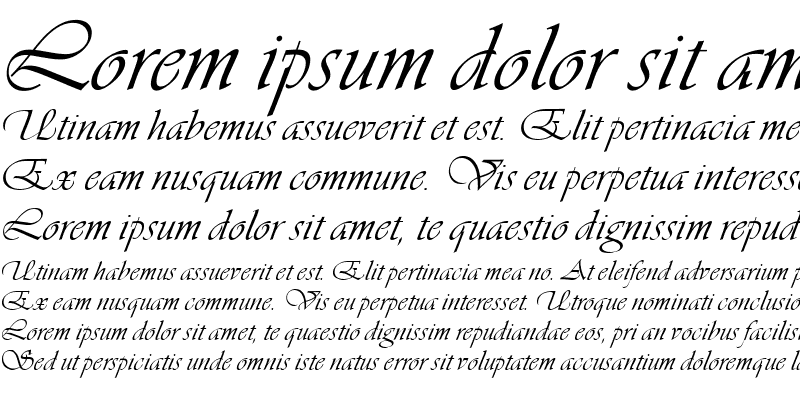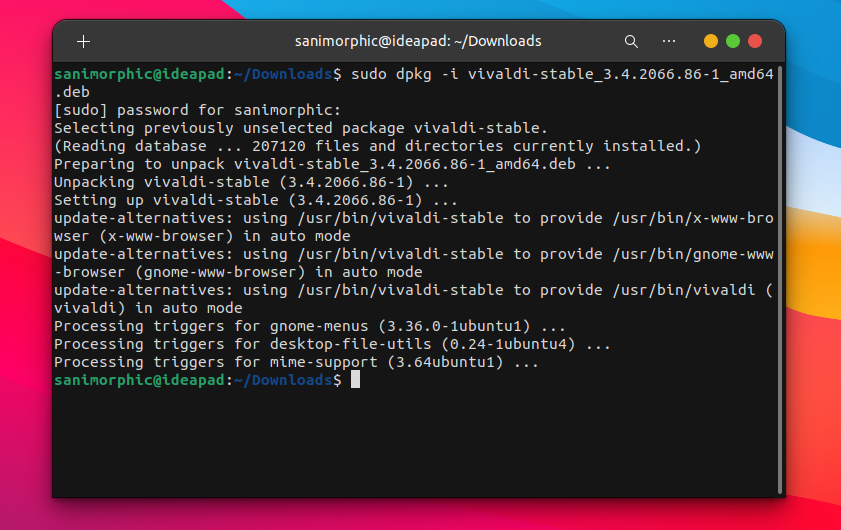Vivaldi’s mouse and trackpad experience also outdoes Chrome, despite being based on the same code. Two-finger scrolling seems to work better with Microsoft’s Precision Trackpad drivers (as. Vivaldi was cofounded by Jon Stephenson von Tetzchner, the former CEO of Opera, another popular browser. Opera users will be familiar with the Speed Dial concept: It gives you instant access to. Vivaldi turned his skills to composing operas and the next few years were his most successful period and he toured to much acclaim around the large cities of Europe. He was the toast of royalty and kings and Emperor Charles VI liked his music so much he invited him to Vienna where more lucrative opportunities lay at the heart of the Holy Roman. 21 ways to be a Tab Master with Vivaldi browser. One of the killer features in Vivaldi browser is tab management. Jon and Varsha take you through 21 tab tricks you should master in 2021. Download Vivaldi. Vivaldi browser runs on Windows, Mac and Linux. Select your operating system below to get started. Vivaldi browser protects you from trackers, blocks unwanted ads, and puts you in control with unique built-in features.

I Vivaldi Funchal
Our editors will review what you’ve submitted and determine whether to revise the article.
Join Britannica's Publishing Partner Program and our community of experts to gain a global audience for your work!

Download dsi driver. Antonio Vivaldi, in full Antonio Lucio Vivaldi, (born March 4, 1678, Venice, Republic of Venice [Italy]—died July 28, 1741, Vienna, Austria), Italian composer and violinist who left a decisive mark on the form of the concerto and the style of late Baroque instrumental music.
Life
Vivaldi’s main teacher was probably his father, Giovanni Battista, who in 1685 was admitted as a violinist to the orchestra of the San Marco Basilica in Venice. Antonio, the eldest child, trained for the priesthood and was ordained in 1703. His distinctive reddish hair would later earn him the soubriquetIl Prete Rosso (“The Red Priest”). He made his first known public appearance playing alongside his father in the basilica as a “supernumerary” violinist in 1696. He became an excellent violinist, and in 1703 he was appointed violin master at the Ospedale della Pietà, a home for foundlings. The Pietà specialized in the musical training of its female wards, and those with musical aptitude were assigned to its excellent choir and orchestra, whose much-praised performances assisted the institution’s quest for donations and legacies. Vivaldi had dealings with the Pietà for most of his career: as violin master (1703–09; 1711–15), director of instrumental music (1716–17; 1735–38), and paid external supplier of compositions (1723–29; 1739–40).
Soon after his ordination as a priest, Vivaldi gave up celebrating mass because of a chronic ailment that is believed to have been bronchial asthma. Despite this circumstance, he took his status as a secular priest seriously and even earned the reputation of a religious bigot.
Vivaldi’s earliest musical compositions date from his first years at the Pietà. Printed collections of his trio sonatas and violin sonatas respectively appeared in 1705 and 1709, and in 1711 his first and most influential set of concerti for violin and string orchestra (Opus 3, L’estro armonico) was published by the Amsterdam music-publishing firm of Estienne Roger. In the years up to 1719, Roger published three more collections of his concerti (opuses 4, 6, and 7) and one collection of sonatas (Opus 5).
Vivaldi made his debut as a composer of sacred vocal music in 1713, when the Pietà’s choirmaster left his post and the institution had to turn to Vivaldi and other composers for new compositions. He achieved great success with his sacred vocal music, for which he later received commissions from other institutions. Another new field of endeavour for him opened in 1713 when his first opera, Ottone in villa, was produced in Vicenza. Returning to Venice, Vivaldi immediately plunged into operatic activity in the twin roles of composer and impresario. From 1718 to 1720 he worked in Mantua as director of secular music for that city’s governor, Prince Philip of Hesse-Darmstadt. This was the only full-time post Vivaldi ever held; he seems to have preferred life as a freelance composer for the flexibility and entrepreneurial opportunities it offered. Vivaldi’s major compositions in Mantua were operas, though he also composed cantatas and instrumental works.
The 1720s were the zenith of Vivaldi’s career. Based once more in Venice, but frequently traveling elsewhere, he supplied instrumental music to patrons and customers throughout Europe. Between 1725 and 1729 he entrusted five new collections of concerti (opuses 8–12) to Roger’s publisher successor, Michel-Charles Le Cène. After 1729 Vivaldi stopped publishing his works, finding it more profitable to sell them in manuscript to individual purchasers. During this decade he also received numerous commissions for operas and resumed his activity as an impresario in Venice and other Italian cities.
In 1726 the contralto Anna Girò sang for the first time in a Vivaldi opera. Born in Mantua about 1711, she had gone to Venice to further her career as a singer. Her voice was not strong, but she was attractive and acted well. She became part of Vivaldi’s entourage and the indispensable prima donna of his subsequent operas, causing gossip to circulate that she was Vivaldi’s mistress. After Vivaldi’s death she continued to perform successfully in opera until quitting the stage in 1748 to marry a nobleman.

In the 1730s Vivaldi’s career gradually declined. The French traveler Charles de Brosses reported in 1739 with regret that his music was no longer fashionable. Vivaldi’s impresarial forays became increasingly marked by failure. In 1740 he traveled to Vienna, but he fell ill and did not live to attend the production there of his opera L’oracolo in Messenia in 1742. The simplicity of his funeral on July 28, 1741, suggests that he died in considerable poverty.
After Vivaldi’s death, his huge collection of musical manuscripts, consisting mainly of autograph scores of his own works, was bound into 27 large volumes. These were acquired first by the Venetian bibliophile Jacopo Soranzo and later by Count Giacomo Durazzo, Christoph Willibald Gluck’s patron. Rediscovered in the 1920s, these manuscripts today form part of the Foà and Giordano collections of the National Library in Turin.
Vivaldi Spring
Vivaldi Classical Music
- born
- March 4, 1678
Venice, Italy
- died
- July 28, 1741 (aged 63)
Vienna, Austria
- notable works
- movement / style
